The mood remains very positive in the beef trade this week, with finished cattle in demand and factories being forced to raise quotes to secure cattle for the second week in a row.
Some factories have moved to €3.75/kg for heifers, with plants further north being forced to the higher end of the prices to get cattle.
While €3.80/kg is rare, it has been paid and the price will likely go higher in the coming weeks.
Angus and Hereford cattle remain in firm demand, with a bonus of 20c/kg being paid on in-spec cattle. Flat deals are also being negotiated for as high as €4.05/kg for suitable animals.
The cow trade has also improved this week. Quotes for good R grading cows are at €3.20/kg to €3.30/kg, with O grades coming in at €2.90/kg to €3.00/kg and O grades at €2.80/kg to €2.90/kg.
The bull trade has also steadied. Under-16-month bulls are trading off €3.60/kg to €3.65/kg on the grid.
Older R grading bulls are at €3.60/kg to €3.70/kg, with U grades coming in on average 5c/kg to 10c/kg higher at €3.65/kg to €3.75/kg.
Most factories now have the 1 January Brexit date firmly in their sights, with some communicating to large finishers of a large kill required in December in order to stockpile chilled product in the UK.
While the level of disruption is unknown, it is likely supply chains will be affected, so the incentive is there to get as much product into the UK in the next six weeks prior to 1 January.
At the moment, you have two positives in the market – a very strong retail trade due to COVID-19 and supermarkets also making sure that factories have contingency plans in place ahead of any Brexit disruptions.
The anticipation of UK exiting lockdown and restaurants and food service establishments opening up again in the next few weeks is also helping to drive demand.
COVID-induced family gatherings is seen as a positive for roasting beef joints and retailers are preparing for a surge in demand over the next few weeks. COVID issues in meat processing plants across the water in the UK has meant some orders have been diverted to both northern- and southern-based plants over the past seven to 10 days.
This has seen some meat factories ramp up production, with a few factories moving to a six-day week to kill extra cattle, such is the demand.
Last week’s kill dropped to 36,837 head, a drop of almost 2,500 on the week before, with the majority of the fall coming in the prime cattle categories.
There were 1,145 fewer bullocks killed last week and 1,473 fewer heifers killed last week.
Live exports for direct slaughter to NI have also jumped last week, up to 483 cattle, a rise of 130 on the week before. Exports of cattle for further feeding were at 274 head last week.
IFA livestock chair Brendan Golden called on factories to step up to the plate and return the full value of the current market conditions to farmers.
He pointed to the Bord Bia Beef Market tracker ‘prime export benchmark price’, which has increased by 5c/kg, bringing the differential now to 10c/kg above the equivalent Irish price.
“This is unjustifiable in the current market and must be closed,” he said.
NI comment
The beef trade in Northern Ireland continues to edge upwards, although base quotes on U-3 grading animals are holding on 366p/kg (€4.33/kg inc VAT). Despite this, farmers selling cattle report steers at 374p to 376p/kg (€4.42 to €4.45/kg), with more regular finishers on 380p/kg (€4.50/kg).
Deals on heifers range from 378p to 386p/kg (€4.47 to €4.57/kg) at the upper end of the market. Demand for cows is growing, with deals of 300p/kg (€3.55/kg) for good numbers of R grading suckler bred animals.



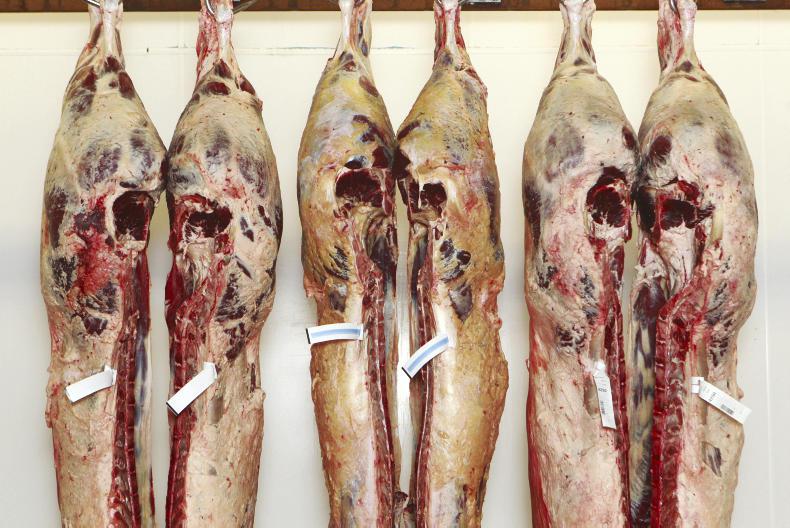
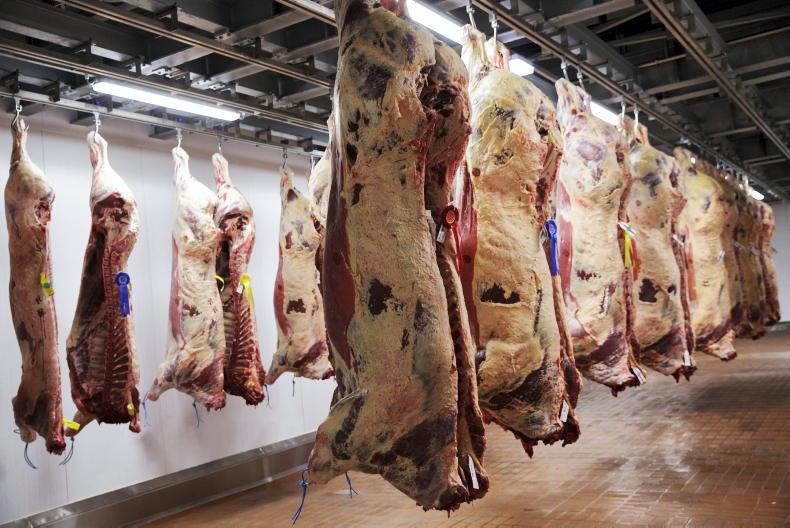

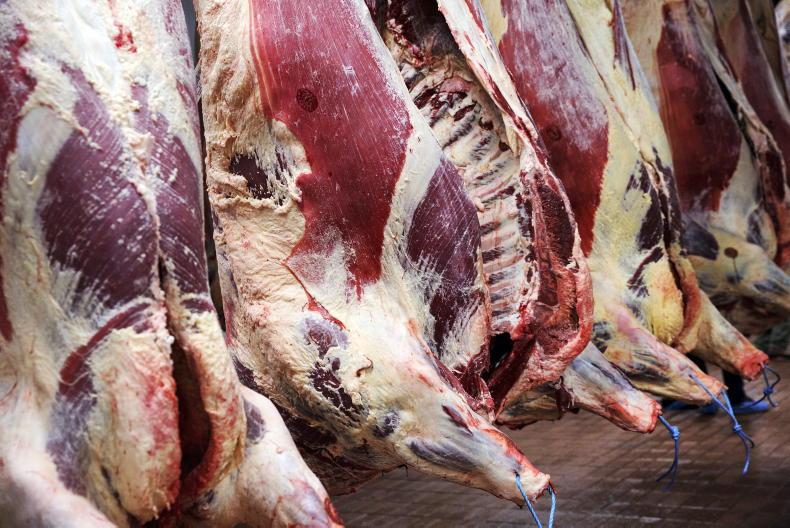
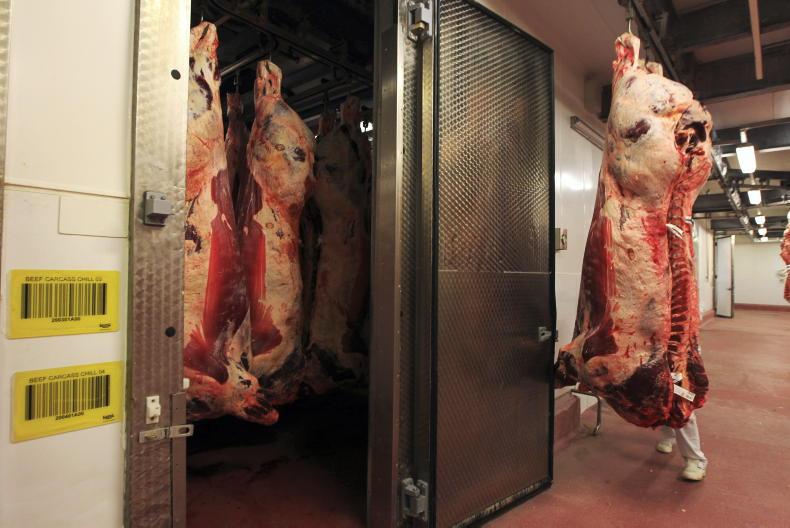
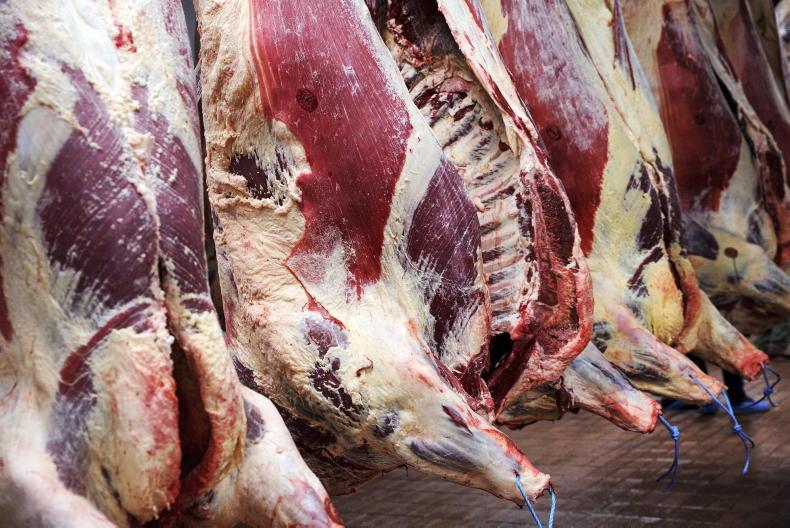
SHARING OPTIONS